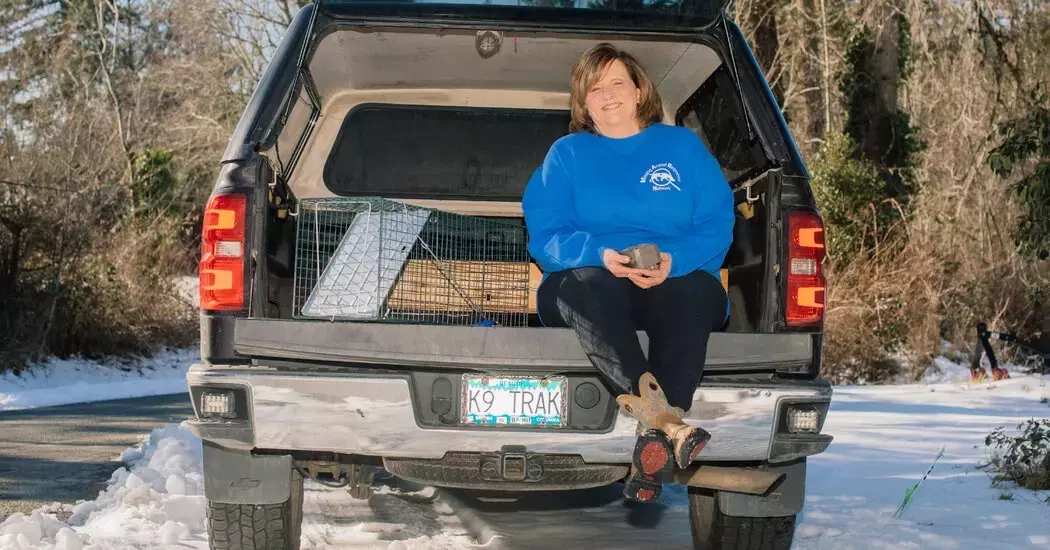
A former police officer and bloodhound handler, Kat Albrecht transformed her experience into a pioneering career as a lost-pet detective. Her journey began when her own dog went missing, leading her to explore innovative methods for finding lost animals. Realizing the potential of scent-tracking dogs for locating missing pets, she developed strategies that analyze the behavior of lost animals. Through her efforts, Albrecht has trained others and contributed to research on pet behavior, establishing the Missing Animal Response Network.
Albrecht's work focuses on understanding the differences in behavior between lost cats and dogs. By studying these behaviors and employing detection techniques, she has created effective methods for recovering lost pets. Her mission now involves training individuals to continue her legacy, providing support and resources to pet owners in distress.
Pioneering the Use of Scent-Detection Dogs for Lost Pets
Kat Albrecht's career as a lost-pet detective started with a personal incident involving her bloodhound, A.J., who escaped her yard. With no professional animal recovery teams available, she relied on a friend’s golden retriever named Kea, demonstrating that dogs could track scents not only for humans but also for other animals. This realization sparked her interest in developing specialized training programs for scent-detection dogs focused on finding missing pets.
Her groundbreaking approach involved adapting traditional search-and-rescue techniques to locate lost animals. Recognizing the need for systematic solutions, Albrecht founded the Missing Animal Response Network, an organization dedicated to educating people about lost-pet behavior and training them in recovery methods. Through this initiative, she has empowered countless individuals to become skilled pet detectives. Her work highlights the importance of leveraging canine abilities to address a widespread issue affecting pet owners globally.
Understanding and Addressing Lost-Pet Behavior
Beyond utilizing scent-tracking dogs, Albrecht emphasizes the significance of analyzing lost-pet behavior. Her research underscores the distinct reactions of dogs and cats when they go missing, requiring tailored strategies for each species. By focusing on behavioral patterns, she provides pet owners with actionable insights to improve their chances of reuniting with their companions.
For instance, while dogs may wander aimlessly or return home instinctively, cats often hide nearby in fear. Albrecht's expertise lies in teaching pet owners how to interpret these behaviors and adjust their search tactics accordingly. Collaborating with researchers, she has contributed valuable data to the field of lost-animal studies. Additionally, her training programs ensure that participants gain hands-on experience, equipping them with the skills needed to handle various scenarios effectively. Through education and collaboration, Albrecht continues to make a lasting impact on the lives of both pets and their families.
